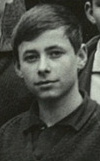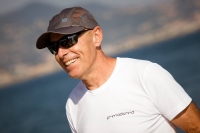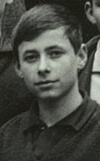Antonov aircrafts kept coming in all night, it was clear we weren’t going to make it

Download image
John (Jan) Schwarz was born on 24 September 1950 in Prague. He grew up in Smíchov and later in Vinohrady. His family was affected by the crimes of World War II, which took freedom and lives of many relatives and turned John’s father’s scholarship in England into many years of service in the RAF. John’s aunt, Anna Magdalena Schwarz, was imprisoned by the communists for seven years after the war. On 21 August 1968 John witnessed the invasion of the occupation forces led by the Soviet Army. As a result of this experience he decided to go into exile. He made his way to the UK via Germany where he was reunited with his parents and sister. The family was granted political asylum in Canada and began a new life in Winnipeg. John studied computer science at the University of Manitoba. After graduating, he got married and he and his Canadian wife Donna moved to Toronto, where they lived for twenty years (with two years break) while John worked at IBM. From 2000, he ran several companies, even founded one at the age of 60, and is currently (2021) involved in the successful Czech company Avast as Chairman of the Board. He returns to the Czech Republic regularly and he has many ideas in mind about further projects he could carry out in the professional field. He has two adult sons and he was living in Florida with his wife at the time of the interview in 2021.


![John Schwarz at the Prague Castle Ball Games Hall [Míčovna] during his visit to Prague](https://www.memoryofnations.eu/sites/default/files/styles/witness_gallery/public/2021-06/IMG_1563.jpeg?itok=Ln2De3c8)
